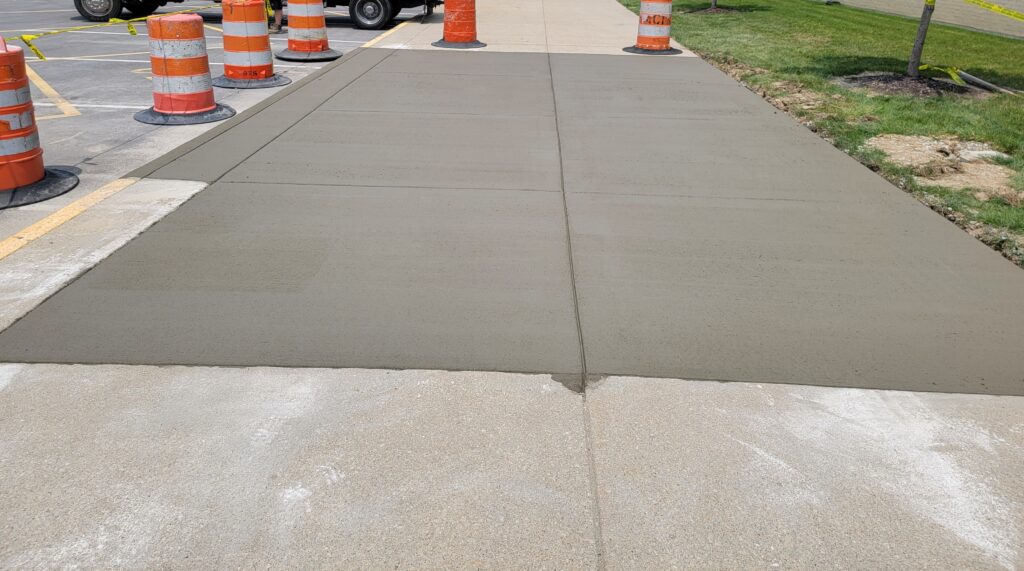The foundation of a commercial enterprise is not just its products and services, but the very ground it stands on. Clipboards aren’t just for accountants– they’re the tools of the trade for any discerning commercial property owner or facility manager keen on maintaining the integrity of their surfaces. Excellent pavement isn’t just about aesthetics; it’s a foundational piece of your business’s safety and functionality.
But what exactly goes into the seamless underfoot experience that’s synonymous with quality in a commercial setting? In this comprehensive guide, we’ll uncover the crucial steps and best practices required to achieve an impeccable, long-lasting pavement installation for your commercial venture.

Why Quality Pavement Installation Matters
The importance of high-quality pavement installation in a commercial space cannot be overstated. It’s not just about creating an inviting and safe environment for customers and employees; it’s also a major investment in the longevity of your property. High-quality pavement is designed to withstand heavy traffic, varying weather conditions, and the test of time, all while requiring minimal maintenance.
Factors Affecting Pavement Quality
Countless variables can influence the quality of a pavement installation. From the type of material chosen to the techniques used during installation, each decision can tip the scale between an exceptional job and one that might require immediate attention. Other factors like proper drainage, load-bearing capacity, and compliance with local building codes also play pivotal roles in determining overall quality.
Steps for Ensuring High-Quality Installation
Here we dissect the commercial pavement installation process into four interlocking steps that, when combined, guarantee a high-quality outcome.
1. Site Preparation is Key
Prior to any pavement project, evaluating and prepping the site is foundational. Proper site preparation includes clearing the area, compacting the soil to prevent settling, and ensuring adequate drainage to prevent erosion and potholes. A well-prepared base is critical for the longevity and structural integrity of your pavement.
2. Material Selection and Consistency
The materials used in your commercial pavement, whether concrete or asphalt, must be selected with a focus on your specific needs and the expected use of the area. Consistency in material quality, particularly in the aggregate and the mix, will directly impact the strength and durability of the pavement.
3. Implementing Proper Installation Techniques
Whether it’s laying down asphalt or pouring concrete, the actual installation process requires precision and expertise. Temperature, moisture, and timing are crucial during installation. Neglecting any of these elements can lead to imperfections, including cracks, unevenness, and premature deterioration.
4. Quality Control Measures
A keen eye during and following installation can catch any deviations from the plan. Quality control steps involve assessing the density of the laid asphalt or concrete, looking for any deficiencies or inconsistencies, and confirming compliance with industry standards.
Benefits of Quality Pavement Installation
The investment in a high-quality commercial pavement installation can bring a multitude of benefits that surpass the satisfaction of drive-by smoothness.
Longevity and Retention
Quality installation means your pavement will last significantly longer, saving you the time and money needed for repairs or replacements. This endurance fosters a sense of permanence and reliability, which can be an unspoken but important message about your business’s stability and quality.
Cost Savings Over Time
An initial outlay for quality is a financial strategy–a delayed or mitigated need for costly repairs or reconstructions means less money spent in the long run. It’s an investment that reaps ongoing dividends.
Safety for All
Well-installed pavement minimizes risks associated with trip-and-fall accidents and vehicular damage. A safe environment is a must for any commercial space. It’s not only a moral imperative but also a lineup of potential liability lawsuits deflected.
Benefits of Professional Paving
Utilizing the services of professional paving contractors is a decision that can’t be overstated. The expertise and experience they bring to the table ensure that every step in the process, from preparation to completion, is conducted to the highest standard.
Adherence to Building Codes
Professional paving contractors are well-versed in local building codes and zoning regulations. This ensures that your pavement installation is not only of high quality but also compliant with legal requirements.
Access to Quality Materials
Contractors have access to high-quality paving materials and can source them at a better price than a non-professional. This can lower the cost of your project without compromising on the quality of materials used.
Installation Expertise
Paving professionals have the technical know-how to install your pavement correctly, using the best techniques for maximum effectiveness. Their experience allows them to anticipate and avoid common pitfalls in the installation process.
Warranties and Guarantees
Reputable contractors offer warranties and guarantees on their work, which provides you with peace of mind. In the event of any issues, they will often rectify the problem at no extra cost, an assurance that non-professionals cannot match.
Conclusion
In the intricate dance of commerce, it’s the surface beneath our feet that provides the subtle, steadfast support for the grand ballet of business. The expanse of pavement that leads to our shops, offices, and warehouses is more than mere flooring; it’s a silent but significant ambassador of your brand. Prioritizing high-quality installation in your commercial pavement is more than a prudent expense—it could be the unspoken difference that sets you apart in the bustling market.
Ready to elevate your Indy commercial property with top-tier paving services? Contact ACI Asphalt and Concrete at 317-549-1833 for licensed, bonded, and insured commercial pavement repair and installation in Indianapolis and surrounding townships. We also provide comprehensive paving solutions for road damage, potholes, pavement drainage, line striping, bollards, culverts, ADA compliancy, and much more.
Related Posts:
Concrete Versus Asphalt: Which is Better for Paving?
Facts About Concrete Slab Assembly and Installation
The Best Times of Year to Install New Pavement

